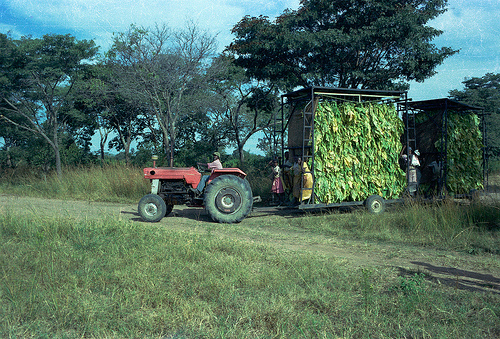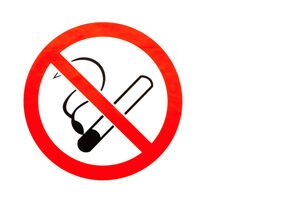Japan Tobacco International has reiterated its commitment to pursue what it describes as its flagship child labor elimination program ARISE.
This follows the deferment by the International Labor Organization (ILO) of a decision on a public-private partnership with the tobacco sector – reportedly the third such deferment in two years.
Since 1919, the ILO, the only tripartite UN agency bringing together governments, employers and workers has been charged with setting labour standards, develop policies and devising programs promoting decent work for all women and men within its 187 member-states.
In a note posted on its website, JTI said a meeting of the governing body of the ILO on Thursday had closed without reaching a consensus on whether to continue its partnership with the tobacco sector in the fight against child labor.
“Improving labor practices in our grower communities is a key priority for our company”, Elaine McKay, JTI’s social programs director, was quoted as saying.
“We regret that the hugely positive impact of our current partnership – taking over 30,000 children out of the fields since 2011 – is being jeopardized by the WHO’s FCTC [World Health Organization’s Framework Convention on Tobacco Control] secretariat and other anti-tobacco activists. Over the past two years, they have constantly distorted and influenced the debate with unfounded allegations, prioritizing politics over concrete solutions to today’s child labor issues. This has been counterproductive and ignoring the real victims of this debate: children and workers in the tobacco sector, but also tobacco growing communities as a whole.”
“We remain fully committed to pursuing our fight against child labor with our dedicated programs, including ARISE – Achieving Reduction of child labor In Support of Education. We trust that the ILO will find a constructive solution to continue promoting decent work in the tobacco sector,” she said.
Category: People

Child support reiterated

Zimbabwe’s sales open
Zimbabwe’s 2018 flue-cured-tobacco marketing-season started on a ‘high note’ with the opening price of US$4.99 per kg about 8.5 percent higher than that of the previous year, according to a story in the Daily News.
However, the average price on the first day of sales, at US$2.22 per kg, was less than one percent up on that of the previous season, US$2.20 per kg.
During the whole of the 2017 selling season, the average grower price for flue-cured in Zimbabwe, at US$2.96 per kg, was lower than it was in 2009, US$2.98 per kg.
In 1996, the average price was US$2.94 per kg; so, in 21 years, the price rose by 0.6 percent.
The lowest price on the first day of this year’s sales was US$0.30 per kg.
The sales volume on the first day, at 156,000 kg, was down on that of the first day of the 2017 season, 192,000 kg.
FDA 'messing' with cigars
The US Food and Drug Administration has issued an advance notice of proposed rulemaking (ANPRM) seeking comments and scientific data related to the patterns of use and resulting public health impacts of ‘premium’ cigars.
In a note issued through its Center for Tobacco Products (CTP), the agency said it was specifically requesting comments and information not previously submitted in response to its proposed deeming rule.
Submissions, it is said, will be used to inform the agency’s regulatory policies.
The note said that, in 2016, the FDA had finalized the deeming rule extending its authority under the Family Smoking Prevention and Tobacco Control Act to tobacco products not already under its authority, including e-cigarettes, cigars, pipe tobacco and hookah tobacco, among others. The rule included provisions making the sale of these products subject to a range of requirements, such as mandatory age and photo-ID checks to prevent illegal sales to minors; warning statements; submission of health documents; and the prohibition on marketing modified risk products without an FDA order in effect.
‘When proposed, the deeming rule put forth two, alternative regulatory options, one of which would have excluded so-called “premium” cigars from FDA regulation,’ the note said. ‘After carefully considering the public comments on the rule, FDA concluded all cigars pose serious negative health risks, and the evidence did not provide a public health basis for FDA to exclude any type of cigars from regulation.’
Mitch Zeller, director of the FDA’s CTP, said all tobacco products, including ‘premium’ cigars, remained subject to manufacturing, distribution and marketing oversight by FDA.
“However, given the ongoing interest from many parties on this issue ‒ as well as the potential for new data on the topic since the deeming rule published ‒ we’re providing stakeholders an opportunity to submit relevant new information that could inform FDA’s regulation of ‘premium’ cigars.”
Through the premium cigars ANPRM, the agency is requesting comments, data, research results, or other information not submitted in response to the proposed deeming rule on topics including, but not limited to:- ‘The definition of ‘premium’ cigars;
- Use patterns of ‘premium’ cigars generally and among youth and young adults specifically;
- Public health considerations associated with ‘premium’ cigars, including the health effects;
- Studies or information regarding consumer perceptions of the health risks of ‘premium’ cigars; and
- Studies or information on whether any applicable manufacturing, marketing, sale, distribution, advertising, labeling, and/or packaging requirements and restrictions should be applied differently to ‘premium’ cigars compared to other tobacco products, including other cigars.’
The ANPRM will be available for comment from March 26 through June 25.
The ANPRM is one of three previously announced in July 2017 as part of FDA’s comprehensive plan on nicotine and tobacco regulation,’ the note said. ‘Earlier this month, FDA published the other two ANPRMs, “Tobacco Product Standard for Nicotine Level of Combusted Cigarettes” and “Regulation of Flavors in Tobacco Products”.
‘The comprehensive plan serves as a multi-year roadmap to better protect kids and significantly reduce tobacco-related disease and death.’
Tobacco ≠ cigarettes
NZ Smokeless Tobacco Co (NZSTC) has said it is appalled by the lack of ideas being put forward by the New Zealand government to fast track the race for ‘Smoke-free 2025’.
“Our organisation has approached both health ministers regarding Nationals New Pathway to Smokeless Alternatives and Nicotine Delivery Products and their replies were, ‘I am still considering the proposals from the previous government’ which quite frankly is not good enough!,” said Miles Illemann, co-founder of NZSTC.
In a press note, NZSTC acknowledged that New Zealand was suffering a crime wave underpinned by the cigarette black market, but, it added, having organizations such as Action on Smoking and Health and British American Tobacco arguing over spilt milk was not helping.
‘We need change and that’s what New Zealanders want, like the NZDF [New Zealand Defence Force] going smoke-free in 2020 …,’ the note said.
‘NZSTC wants to clear up a few things when talking about tobacco. Firstly, it is cigarettes causing the deaths. Yes, they are tobacco, but it is the way … [in] which it is consumed that is the problem. If we look at the “Swedish Experience” regarding oral tobacco like snus, studies show that it is the most effective way to quit smoking with no risk of cancer. Therefore, cigarettes should be the word of choice used to attack the problem because if we are wanting this government to change, we need to remove the stigma that cigarettes have on tobacco.
‘If we look at Norway for example, we see that by snus being readily available to smokers, the ability to change the statistics around to meet our goals in 2025 is quite possible. It’s not going to happen from plain packaging or any other way except for healthy alternatives to nicotine through a harm reduction strategy.
‘Let’s remember that we are living in a democracy, people have the freedom of choice. We shouldn’t be thinking about taking things away from the people but giving them more healthy options like we have seen in the past with e-cigarettes.’
Ban voted down
Austria’s lower house of parliament voted yesterday to scrap an impending ban on smoking in bars and restaurants, according to a Reuters story.
The vote was a win for the coalition government and came despite opposition from health campaigners and opposition parties.
The ban, which is due to come into effect in May, would bring Austria more into line with fellow EU countries, many of which have stricter smoke-free legislation.
At present, large restaurants in Austria are required to provide separate smoking and non-smoking areas, but the rules are reportedly not rigidly implemented. Smaller restaurants need not have a separate area if the owner agrees to allow smoking on the premises.
More than half a million people in Austria have signed an official petition calling for the ban to go ahead, embarrassing the ruling coalition of conservatives and the far-right Freedom Party (FPO), which has championed both the freedom to smoke and direct democracy.
An FPO demand to have the ban scrapped was written into the coalition agreement struck three months ago.
Now that parliament has approved the bill, it has to be passed by the upper house and signed by the president. It is widely expected to pass in the upper house and to be signed into law.
In a statement, the organizers of the petition, the Vienna’s doctors’ association and the country’s main anti-cancer organization, called the vote a uniquely bad example.
The FPO says a smoking ban would be an unnecessary intrusion on individual liberty and an unfair imposition on bar and restaurant owners.
Opponents say public health is more important and point to the cancer risk posed by passive smoking.
A flavor of things to come
The US’ Food and Drug Administration has issued an advance notice of proposed rulemaking (ANPRM) in respect of tobacco-product flavors.
In a ‘Special Announcement’ issued through its Center for Tobacco Products, the FDA said it was seeking ‘comments, data, research results, or other information related to the role that flavors, including menthol, play in tobacco product use and potential regulatory options the agency could take, such as tobacco product standards and measures related to the sale and distribution of flavored tobacco products’.
‘This notice, along with another ANPRM issued last week related to reducing nicotine in cigarettes to minimally addictive or non-addictive levels, is part of the FDA’s comprehensive plan on tobacco and nicotine regulation, as announced in July 2017.
‘FDA values the public’s input through the comment process and will consider all submissions as it considers possible regulatory actions on these topics. If FDA decides to issue a rule, the first step would be to issue a notice of proposed rulemaking in the Federal Register, which would give the public another opportunity to comment on the proposal.’
The ANPRM on the role of flavors in tobacco products was made available for comment for 90 days from yesterday.
Meanwhile, the FDA Commissioner Scott Gottlieb, MD, issued a 1,400-word statement on the flavors ANPRM in which he said, in part, that, ultimately, the FDA was working to ensure its policies achieved the greatest public health benefit.
‘As such, we’re proceeding with the utmost caution by securing more information about both the potential positives and negatives of flavors in youth initiation and getting adult smokers to quit or transition to potentially less harmful products. ‘Through this lens, the ANPRM we’re issuing today seeks comments, data, research results or other information on topics, including, but not limited to:- The role that flavors play in initiation and patterns of tobacco use, particularly among youth and young adults;
- The role that flavors may play in helping some adult cigarette smokers reduce cigarette use and/or switch to potentially less harmful tobacco products;
- The role that flavors in non-combusted tobacco products may play in quitting combusted tobacco products use, quitting all tobacco use or starting to use more than one type of tobacco product;
- Consumer perceptions of health risks and addictiveness of flavored tobacco products;
- Whether certain flavors used in tobacco products present potential adverse health effects to users or others; and
- The impact of local, state and international efforts to restrict the sale or marketing of flavored tobacco products.
Gottlieb’s piece is at: https://www.fda.gov/NewsEvents/Newsroom/PressAnnouncements/ucm601690.htm

Smokers detrained
Passengers in China who are discovered smoking on high-speed trains or in smoke-free zones of other trains will be prevented from train travel for 180 days, according to a story in The China Daily citing a newly-released document and a Guangzhou Daily report.
The document was issued jointly by the National Development and Reform Commission, the Supreme People’s Court and other government departments.
‘Troublemakers, producers and sellers of counterfeit tickets, and those endangering railway transport safety, will also be prevented from taking trains for 180 days,’ the China Daily story said.
‘A roster of those banned from taking trains will be publicized on 12306.cn, a ticket booking website, and creditchina.gov.cn, a credit check website, for seven consecutive days from the first day of each month. Those listed can appeal during that period.’
The rules are due to come into effect on May 1.
Last week, Reuters reported that China had said it would begin applying its ‘social credit’ system to trains and flights, under which people who had committed misdeeds would be barred from taking such transport for up to a year.
A story by Paul Huang for The Epoch Times, meanwhile, described the ‘social credit’ system as an experiment that international observers had speculated would be the next step in China’s transformation into a total surveillance state.
Vaping masterclasses
A nationwide awareness and education campaign is due to be rolled out by the vaping sector across the UK in April.
VApril, which is being organised by the UK Vaping Industry Association (UKVIA), will be fronted by Christian Jessen, who is a medical doctor, television presenter and writer.
‘The initiative comes on the back of Public Health England’s (PHE) recent review into vaping which reinforced that it was 95 percent less harmful than smoking and revealed that it was one of the most successful ways to quit conventional cigarettes,’ UKVIA said in a press note.
‘The campaign will call upon the country’s smokers to Take the VApril Challenge, which will involve vaping masterclasses at specialist retail stores for smokers to learn about the different products and nicotine strengths that are best suited to a successful quit. As part of the initiative, the UKVIA has published a special education guide – Vaping to break the Smoking Habit.’
“I am always amazed and disappointed to hear that we still have seven million smokers in this country and, according to PHE, around 40 percent of them have never tried vaping,” Jessen was quoted as saying. “Furthermore, more than half of the population don’t realise that vaping is a fraction of the risk of smoking.
“That’s why I’m a committed supporter of the idea of a national vaping awareness campaign such as VApril to encourage smokers to take the first steps to quitting their habit. Already some 1.5 million vapers have given up smoking altogether, but more education is needed to ensure this figure keeps growing.”
John Dunne, a director of UKVIA, said VApril would be the largest campaign ever run by the vaping industry and reflected how far the sector had come in a relatively short time. “The challenge for the industry, government and the public health community is to get across the message that e-cigarettes are a very small risk compared to smoking and that nearly three million smokers are now vaping, with a significant number having switched over altogether,” he said. “VApril aims to be the starting point for more smokers to quit their habit.”
The VApril campaign has its own website at: www.vapril.org.
Flue-cured market opens
Zimbabwe’s flue-cured-tobacco growers were said to be in upbeat mood ahead of the opening of the 2018 sales season, but history is not on their side.
The average grower price for flue-cured in Zimbabwe in 2016, at US$2.95 per kg, was lower than it was in 2009, US$2.98 per kg. Last year, the average price was thought to have been about US$2.96 per kg.
In only two of the seven years from 2009 to 2015 was the price lower than it was in 2016: in 2010, when it was US$2.88 per kg, and in 2009, when it was US$2.73 per kg.
In 1996, the average price was US$2.94 per kg.
According to a story in The Chronicle, Zimbabwe’s flue-cured-tobacco auctions were due to open today, while contract sales are scheduled to begin tomorrow.
Zimbabwe National Farmers Union director, Edward Dune, was quoted as saying that tobacco farmers were upbeat in terms of their expectations.
“We are expecting better prices and hopefully the Reserve Bank of Zimbabwe will pay part of our money in foreign currency,” he said
Dune urged farmers to send their crop estimates on time and book before delivering their crop for sale to avoid congestion at the floors.
“We also welcome the decentralization efforts by some contractors,” he said. “We hear that there are floors that will be operating in Rusape, Karoi and Mvurwi.
“This will definitely go a long way in reducing our production costs and ultimately also reduce congestion at the centralized floors.”
Draconian fines proposed
The details of a bill drafted by Armenia’s Ministry of Health that would introduce a ban on smoking in cafés, restaurants and other public places could still be revised, according to a Arka News Agency (ANA) story.
As it stands, the bill would impose heavy fines on people violating it, Aleksandr Bazarchyan, head of the National Health Institute, said yesterday.
The ANA story had it that, ‘according to various estimates’, about 60 percent of Armenia’s men smoke regularly, while the smoking rate among women is three percent. However, in the capital city, Yerevan, about 10 percent of women aged between 30 and 40 are thought to be smokers.
Under the current bill, people caught smoking in cafés, bars, restaurants, government offices and other public places would be fined 250,000 drams ($520). A repeat offense would attract a fine of 500,000 drams ($1,040).
In defending the hefty fines envisaged by the bill, the Ministry said the move was part of a strategy to reduce the number of smokers because tobacco use was the main cause of the country’s high incidence of lung cancer.
According to Bazarchyan, all the proposals the ministry has received will be studied in the next couple of months and the final version of the bill will be submitted to the parliament by the end of the year.










